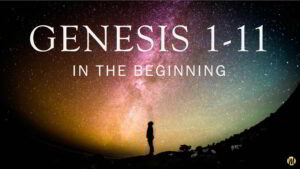 Genesis 1–11: God’s Design for Nationhood (Pt. 4/5)
Genesis 1–11: God’s Design for Nationhood (Pt. 4/5)
Category: Culture/Society
Genesis 1–11: God’s Design for Civilization (Pt. 3/5)
 Genesis 1–11: God’s Design for Civilization (Pt. 3/5) Creation Mandate
Genesis 1–11: God’s Design for Civilization (Pt. 3/5) Creation Mandate
God’s purpose for humanity is expressed in the Creation Mandate. Understood in context, it is to turn the rest of the earth outside Eden into Eden. It involves building a global civilization that is in fellowship with God and consistent with his will. After sin came into the world and humanity was driven out of Eden, the mandate could no longer be fulfilled as intended. The mandate was derailed but not defeated because God cannot be defeated. Through Christ the Creation Mandate is reclaimed so that it will be fulfilled as intended. This is seen in the Great Commission, which is about making disciples of all nations so that they observe everything Christ has commanded in every aspect of their life (a global civilization consistent with God’s will); and Christ is with disciples of all nations through the Spirit (a global civilization in fellowship with God). It is crucial to recognize that the Great Commission is the renewed Creation Mandate. For it means disciples of Christ cannot dichotomize the spiritual from the secular in any aspect of their life—a problem that has been plaguing modern Christianity.
You can view the full video at
Genesis 1–11: God’s Design for Civilisation (Pt. 3/5) Creation Mandate
Genesis 1–11: God’s Design for Personhood (Pt. 2/5)
 Genesis 1–11: God’s Design for Personhood (Pt. 2/5)
Genesis 1–11: God’s Design for Personhood (Pt. 2/5)
God created humanity “in his image.” The meaning of “the image of God” matters; it is our identity as human beings. Today there is a tendency in OT scholarship to confuse the purpose for being made in God’s image with the meaning of being made in God’s image. This video gets beneath the English translation and concludes that to be made in God’s image is to be like God in some ways—in terms of humanity’s God-like nature of personhood, qualities of love and justice, and abilities to communicate and create. All this is so that humanity could fulfill God’s purpose for them. Persons can think, reason and make decisions; God’s design for personhood is for humanity to think, reason and make decisions in a way not independent of God and his will. Humanity began to deviate from this design when Adam and Eve ate from the tree of the knowledge of good and evil. To appreciate why in modern civilization humanity is on a path to self-destruction we need to return to what happened in the garden of Eden.
Genesis 1–11: God’s Design for Humanity. Pt. 1/5
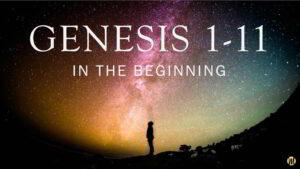 Genesis 1–11: God’s Design for Humanity. Pt. 1/5
Genesis 1–11: God’s Design for Humanity. Pt. 1/5
Critical Theory Legitimization of LGBT. Homosexual Practice & LGBT Sexual Revolution. Part 5/5
 Critical Theory Legitimization of LGBT. HPLSR Part 5/5
Critical Theory Legitimization of LGBT. HPLSR Part 5/5
Central Ideas of Critical Theory
A. Premises: Western culture is being strongly influenced by contemporary critical theory, which makes claims regarding (1) the social binary, (2) hegemonic power, (3) lived experience, and (4) social justice and praxis, or the implementation of critical social theories to effect social transformation.
B. Defining ideas.
1) Social binary, 2) Hegemonic power, 3) Lived experience, 4) Social justice and social transformation.
* The lived experience of minoritized and oppressed groups rivals and at times is prioritized over objective evidence and reason when it comes to understanding the world.
* Oppressive structures/institutions must be overturned.
C. Case study by Jeffrey Satinova on how the LGBT as a powerful aggressive activist movement successfully forced the American Psychiatric Association (APA) to redefine homosexuality, although the redefinition was a result of political activism rather than on scientific evidence.
D. Conclusion
1) LGBT is not just a lifestyle choice. It is an aggressive ideology which seeks power to impose its ideas as the basis of social policy to reshape social reality.
2) The LGBT movement is a well-funded, efficiently organized & aggressive movement seeking to drive the church & Christians from engagement with the public square.
3) Arguably, the LGBT movement is this generation’s signature rebellion against God’s moral law and order in the West.
E. Heb 12:14. Strive for peace with everyone, and for the holiness without which no one will see the Lord.
Challenge: We must courageously declare the truth of biblical teaching & humbly seek to share the wholeness found in God’s grace that brings liberation and real substantial healing to our brokenness.
You can view the full video at:
Critical Theory Legitimization of LGBT. HPLSR Part 5/5
Related Posts
The Triumph of the Therapeutic and the LGBTQ Sexual Revolution
The Rise & Dominance of LGBT Movement. Homosexual Practice & LGBT Sexual Revolution. Part 4/5
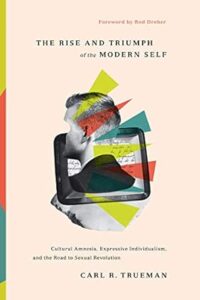 The Rise & Dominance of LGBT Movement. HPLSR. Part 4/5
The Rise & Dominance of LGBT Movement. HPLSR. Part 4/5
Question – how did the Christianized West abandon biblical morality & how did the LGBT movement become the dominant social-cultural revolutionary movement today?
A. Historical Developments
Pre-modern world mindset: “Mimesis” – discover meaningful moral order instituted by God & conform to it vs Poiesis – Modern technological mindset: “Poiesis” – sees the world as raw material out of which meaning and purpose can be created by the individual.
B. Prioritization of the individual’s inner psychology (Rousseau) – we might even say “feelings” or “intuitions” – for our sense of who we are and what the purpose of our lives is.
Result: Expressive individualism (Charles Taylor) and autonomous self, plastic people who make and remake personal identity at will.
Judith Butler: gender is not identical to biological sex. It is rather, “acts and gestures which are learned performance.
C. Contestation: Biological sex vs claim that gender identity is determined by one’s inner feelings (and beliefs), not by physical reality. Premise: Disorders in sexual development (DSD) do not constitute a third sex. Rather, DSDs are disorders in the development and formation of the male or female body.
Problem with Sex reassignment surgery (SRS).
D. Revolutionary imperative against sexual distinctions
Wilhelm Reich claimed that sexual distinction is a form of social repression. Transgenderism is a rebellion to overcome sexual distinctions.
Herbert Marcuse – To transform society politically, then, one must transform society sexually and psychologically. Logical outcome – the revolutionary imperative in response to the view sexual distinction is repressive.
You can view the full video at:
The Rise & Dominance of LGBT Movement. HPLSR. Part 4/5
Paul’s Teaching on Homosexual Practice. Homosexual Practice & LGBT Sexual Revolution. Part 3/5
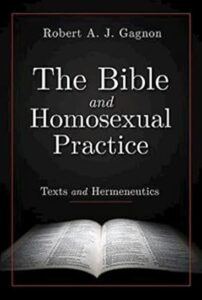 Paul’s Teaching on Homosexual Practice. HPLSR Part 3/5
Paul’s Teaching on Homosexual Practice. HPLSR Part 3/5
A. Rom. 1:22-27 The traditional interpretation of Rom 1:26–27 makes the following points: (1) homosexual and lesbian sex result, as do other sins, from rejecting God’s truth; (2) same-sex sexual relations are a judgment upon those who engage in them (“God gave them over”); (3) same-sex sexual relations are contrary to the ordinances for sex and marriage revealed by God in Scripture (Genesis 1–2) and in nature itself; and (4) thus, such sexual activities are immoral and disobedient to God, i.e., they are sinful.
B. The following LGBT claims are rejected
Claim 1. Paul talking about pederasty (sex with boys). No relevance to loving, consensual, monogamous, same-sex relations.
Claim 2. Paul talking about heterosexuals having homosexual sex – no relevance to people born with homosexual orientation. BUT para physin refers to unnatural relations contrary to nature.
C. Paul underscores his rejection of homosexual practice by using the Greek words for “male” and “female” rather than the more common words for “man” and “woman.” He is quoting from Gen. 1:27.
Meaning of the phrase “homosexual acts are ‘intrinsically disordered’ and ‘contrary to natural law’,” means.
D. 1 Corinthians 6:9-10 and 1Tim. 1:10
Meaning of the phrase, “men who practice homosexuality [oute malakoi oute arsenokoitai.”
Meaning of the terms, arsenokoites, ἀρσενοκοίτης and malakos, mαλακός
E. Homosexuality is contrary to the creation order of God. Hence, it is condemned by God, but it is not the last word of God. The message of the Bible: God’s grace and salvation is extended to everyone – to both heterosexuals and homosexuals who believe in Christ and repent from their sins.
You can watch the video at
Paul’s Teaching on Homosexual Practice. HPLSR Part 3/5
OT & Jesus’ Teaching on Homosexual Practice. HPLSR Part 2/5

A. Can Homosexuals be changed? Difficult to change, but possible. Therapy gives relative success: 30 percent experience freedom from symptoms and 30 percent experience significant improvement.
B. OT teaching– Homosexuality viewed as a grievous sin. All forms of homosexual practice were rejected. 1) Gen. 19 Sodom and Gomorrah. Exegetical refutation of revisionists who alleged that the sin in Sodom and Gomorrah was inhospitality, violent gang rape vs consensual sex. 2) Lev. 18:22, 20:13; Deut. 23: 17-18. Homosexual practice is the only specific sin singled out as an abomination and given death penalty. 3) Lev. 18:24-30. Prohibition against homosexuality is universal & not just restricted to Israel.
C. NT teaching Jesus was silent on the issue, but silent does not mean approval.
Continue reading “OT & Jesus’ Teaching on Homosexual Practice. HPLSR Part 2/5”
LGBT Ideology & Activism in Social Context. Homosexual Practice & LGBT Sexual Revolution. Part 1/5
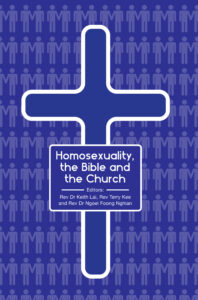 LGBT Ideology & Activism in Social Context. HPLSR Part 1/5
LGBT Ideology & Activism in Social Context. HPLSR Part 1/5
A. Two Opposing Reactions to Homosexual Practice
1) Inclusivist Liberals: Emphasis on LOVE with a loose attachment to biblical law.
2) Historical church 2000 yr Tradition.
B. Application – Welcoming, but not affirming
Speak God’s truth in love BUT no place for self-righteousness.
Differentiate between people struggling with same-sex attraction from militant homosexual activists.
Main focus on homosexual practices tho’ may make reference to the sexual dysphoria and transgender debate.
C. Basic Facts
Relevant statistics about homosexual practices today
Multiple causes of homosexuality.
D. Biblical Focus on Acts, Not ‘Orientation’
The Bible knows nothing of “homosexual orientation.” The church’s moral focus is not fundamentally with homosexual orientation, no matter how it is supposed to develop.The church’s moral concern is with what an individual does with his or her experiences of same-sex attraction. Continue reading “LGBT Ideology & Activism in Social Context. Homosexual Practice & LGBT Sexual Revolution. Part 1/5”
On the Pope Dotting the Eye of the Dragon
 In response to my earlier post on Redeeming the Lion Dance for the Glory of God, I was asked about my view on a video which shows the Chinese Dragon Dance being performed in the Apostolic Palace and the Pope dotting the eye of the dragon. Re: link given in the comment section.
In response to my earlier post on Redeeming the Lion Dance for the Glory of God, I was asked about my view on a video which shows the Chinese Dragon Dance being performed in the Apostolic Palace and the Pope dotting the eye of the dragon. Re: link given in the comment section.
My understanding of the dragon dance in Chinese culture:
The dragon in Chinese culture is not inherently evil. It is actually a wise & benevolent creature. No surprise, many Chinese parents plan to have a (male) child in the year of the dragon. I asked many Chinese scholars whether the Chinese dragon exists & I get a blank look in their eyes. Their answer – the dragon is just a symbol, although to me religious symbols have spiritual consequences. Finally, the dragon was also used to symbolize the Emperor in ancient China. In the light of the positive perception of the dragon in Chinese culture, it is questionable whether the Chinese dragon should be associated with the evil dragon in the Book of Revelation and in Western culture. The application of the same English word to these two creatures is a historical accident or coincidence in literary translation.
However, with all due respect, I have problems with the Pope & the Catholic Church blessing the dragon dance as it is. Continue reading “On the Pope Dotting the Eye of the Dragon”